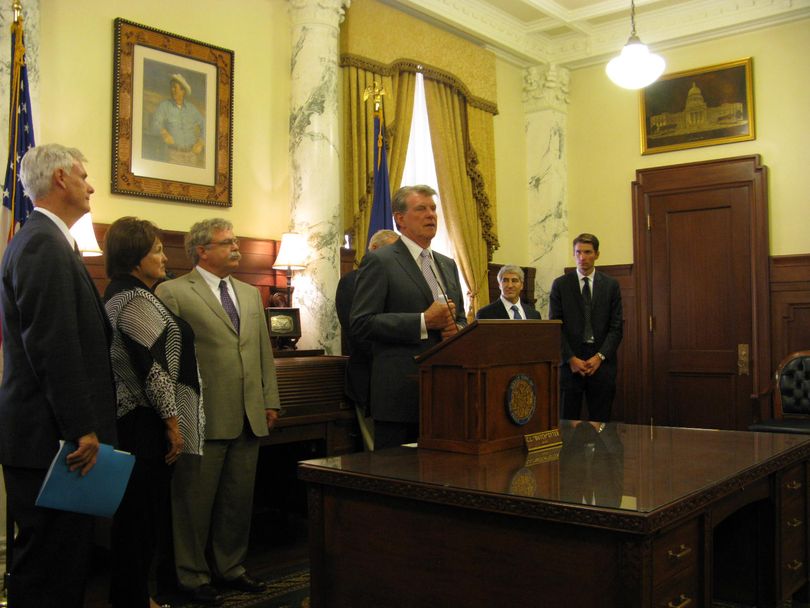Idaho launches criminal justice reform push

Idaho has some of the nation’s lowest crime rates, but its prison population is growing quickly at a time when most states are seeing declines. So now all three branches of state government in Idaho – from the governor to the Supreme Court to the Legislature – are coming together to launch an intensive new effort to find out what’s going wrong and fix it, with the help of grant funding and aid from the Pew Charitable Trusts, the U.S. Department of Justice’s Bureau of Justice Assistance, and the Council of State Governments’ Justice Center; you can read my full story here at spokesman.com.
The state qualified for more than a quarter-million dollars in grant funding for the effort, which Gov. Butch Otter unveiled at a news conference in his office today, joined by Supreme Court Chief Justice Roger Burdick, legislative leaders, top officials from an array of state agencies and representatives of Pew and CSG. “Criminal justice is taking a larger and larger share of our state budget every year,” Otter said. And despite Idaho’s low crime rates, one of every 34 males is involved in the criminal justice system and one of every 156 females, he said. Plus, 51 percent of those in Idaho’s prisons are repeat offenders. “So what are we not doing while we have them, to prepare them for a life outside of the correctional environment that they end up in?” Otter asked. “What more can we do?”
Other states including Texas, Kansas, South Carolina and more have worked with the same partners on the “justice reinvestment” approach, which involves intensive analysis of data, developing policy options, putting new strategies in place and measuring results. Some states have seen impressive results. Texas estimated that it averted $340 million in operational costs and $1.5 billion in prison construction costs. South Carolina was expecting an increase of 3,000 prison inmates in 2010 and $300 million in increased costs; instead, its prison population dropped.
“We’re going to use every tool we possibly can,” Otter said. That could include changes in sentencing, treatment, education, rehabilitation and more. A broad, multi-agency working group started meeting on the project today, and a legislative interim committee is holding its first meeting this afternoon, chaired by the House and Senate judiciary chairmen, Sen. Patti Anne Lodge, R-Huston, and Rep. Rich Wills, R-Glenns Ferry. The aim is to develop solutions as soon as possible, including some that could be considered in the legislative session that starts in January of 2014.
Wills, a retired state trooper, said, “It’s going to be a great opportunity for us to bite the bullet, to save money, and to prepare our citizens that need it, that are housed behind those walls, to get out and do something constructive rather than destructive as we’ve seen in the past.”
